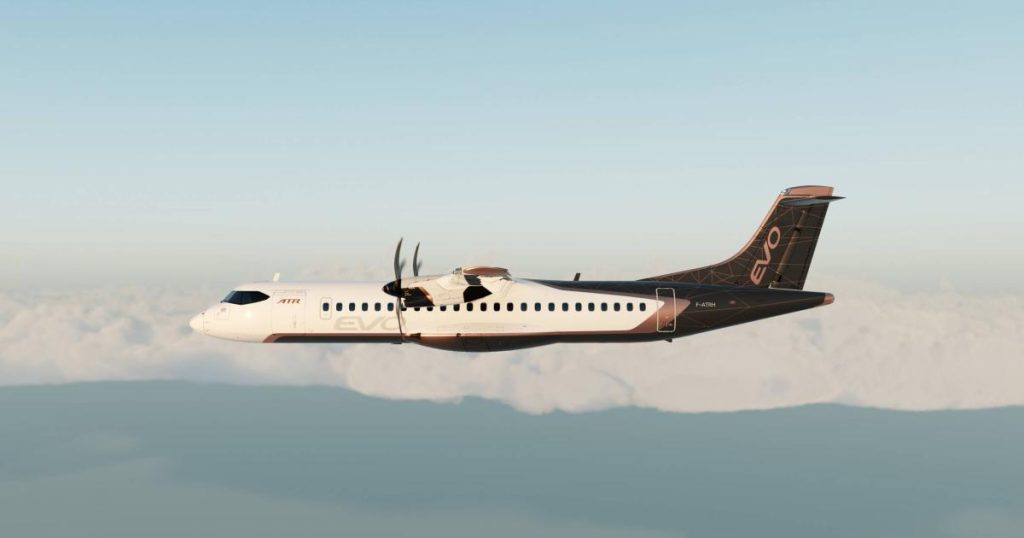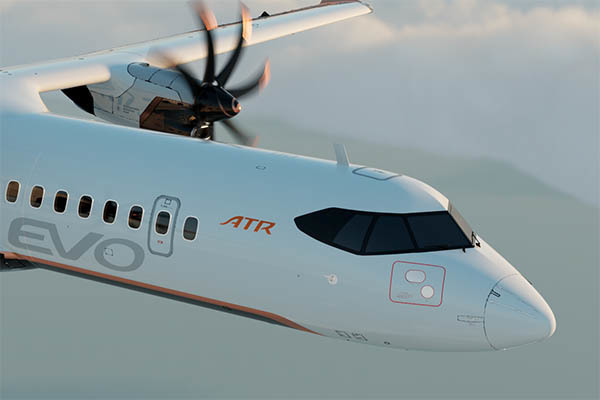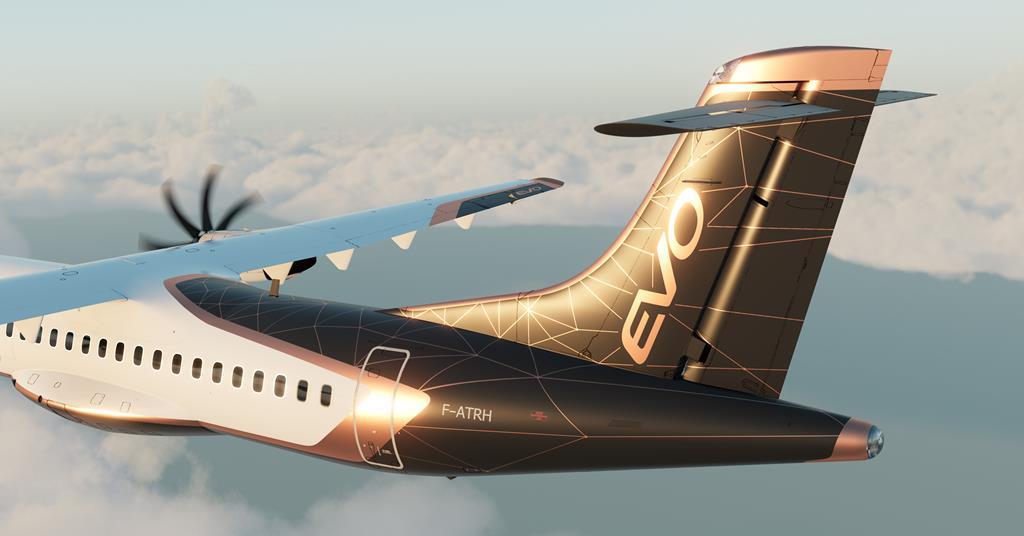ATR Progresses Feasibility Studies for Evo Hybrid-Electric Airliner
Franco-Italian Airframer ATR Progresses Towards Next-Generation Aircraft Amid Growing Interest in Hybrid-Electric Technology

image source: ATR
Franco-Italian aircraft manufacturer ATR is forging ahead with feasibility studies for the Evo hybrid-electric evolution of its twin-turboprop airliner, marking significant strides towards the development of a next-generation aircraft. While the formal launch of the program is not anticipated before 2025, ATR’s ongoing efforts underscore its commitment to embracing innovative propulsion systems.
In 2022, ATR initiated a request for information (RFI) process to evaluate potential propulsion systems for the Evo aircraft. The RFI, which concluded at the end of 2023, garnered responses from renowned engine manufacturers worldwide capable of delivering powerplants with thermal power ranging from 4,000 to 5,000hp. Although ATR has not disclosed the respondents, it acknowledges the critical role of efficient, high-powered engines in achieving the Evo’s performance targets.

image source: ATR
Pratt & Whitney Canada, ATR’s incumbent engine supplier, has been instrumental in powering the latest generation of ATR aircraft. However, future engines for the Evo are expected to surpass current specifications, facilitating enhanced performance and contributing to the aircraft’s targeted 20-30% reduction in CO2 emissions.
ATR’s collaboration with engine manufacturers has been met with enthusiasm, with plans to issue a new RFI/Request for Proposals later this year. This iterative process reflects ATR’s commitment to identifying optimal engine solutions that align with its ambitious environmental and operational goals.
While the propulsion system is central to achieving emissions reductions, ATR emphasizes the importance of aerodynamic enhancements and other modifications in realizing the Evo’s efficiency targets. The comprehensive evaluation of engine options will inform critical decisions regarding the aircraft’s design and performance capabilities.

image source: ATR
Supported by France’s PARIDES research and technology program, ATR’s work on the Evo has been bolstered by state-backed initiatives aimed at advancing low-emission regional aircraft technology. Through collaborative efforts with industry partners and operator feedback, ATR aims to ensure that the Evo meets the evolving needs of the aviation sector while delivering sustainable solutions for the future.
As ATR progresses towards its goal of introducing the Evo into service by 2030, the aerospace industry awaits further developments in hybrid-electric technology and the unveiling of innovative propulsion solutions. With the potential to revolutionize regional air travel, the Evo represents a significant milestone in ATR’s legacy of innovation and sustainability.
ATR, a joint venture between Airbus and Leonardo, remains at the forefront of aviation innovation, driving progress towards a greener, more efficient future for air transportation.






